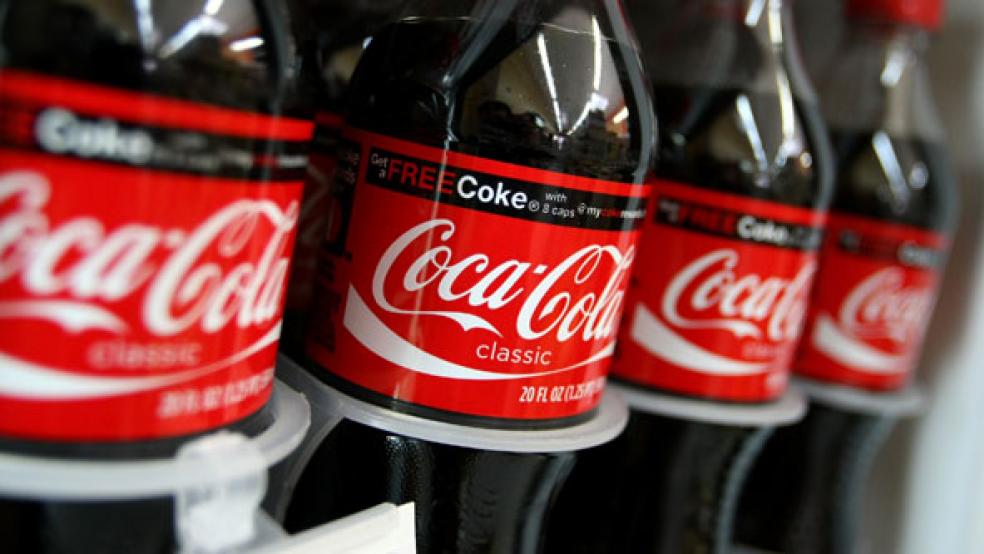Soft drink giants The Coca-Cola Company and PepsiCo both announced new ad campaigns recently. Their strategies, though, could not be more different. Pepsi went the traditional route, signing an American superstar, Beyoncé, to a reported $50 million deal to promote its signature soft drink. Coke, on the other hand, did something utterly unexpected, releasing attention-grabbing ads that address the link between soft drinks and obesity.
But the real surprise is that Pepsi’s campaign has garnered a critical backlash, while Coke could be reaping benefits by more openly courting controversy.
At first glance, it might look like Coca-Cola is giving anti-obesity critics more ammunition by acknowledging its own role in the national epidemic – and nutrition experts like Marion Nestle of NYU have certainly lambasted the company, calling the ad “an astonishing act of chutzpah.”
“What the industry is trying to do is forestall sensible policy approaches to reducing sugary drink consumption, including taxes, further exclusion from public facilities, and caps on serving sizes such as the measure proposed by Mayor Bloomberg” in New York City, said Michael Jacobson, executive director of the Center for Science in the Public Interest.
But airing the obesity ads now may be a brilliant move. Both Coke and Pepsi have been fighting a losing battle in the U.S. – between 1998 and 2012, per capita fizzy soft drink consumption in America dropped 16 percent, according to the trade publication Beverage Digest, while the number of gallons of Coca-Cola sold in the U.S. dropped 22 percent from 2001 to 2010, according to a 24/7 Wall St. report published by NBC News.
The decline is showing no signs of bottoming out. “Consumption of full-calorie carbonated soft drinks [in the U.S.] is likely to show continued modest declines for at least the next several years,” says Gary Hemphill, managing director of research at the Beverage Marketing Corporation, a market research firm. The Coca-Cola Company has introduced Diet Coke in 1982 but, anticipating this continued decline, it pushed to further diversify its products away from full-calorie soft drinks, launching Dasani bottled water in 1999, acquiring Odwalla in 2001 and rolling out Coke Zero in 2005, among other moves.
There’s a reason Coca-Cola is the world’s most valuable brand, though: Coke’s marketers know what they’re doing. It turns out that Coke’s ad campaign highlighting the poor health implications of soft drinks is also an ad campaign promoting those of its products that Americans today increasingly prefer. Pretty slick.
RELATED: How Sugar Daddy Lobbyists Killed the War on Obesity
Like Coca-Cola, Pepsi now has a diverse portfolio of products, many of them far healthier than Pepsi Cola. But it’s using the Beyoncé campaign to promote the very drink that Americans have been shying away from for the past decade rather than to align its name with lower-calorie alternatives, as Coke chose to do.
It’s possible that no one would have noticed, had the choice of Beyoncé not proved particularly problematic. The singer has been a public supporter of Michelle Obama’s Let’s Move campaign to fight obesity in children, a clear conflict of interest. New York Times food writer Mark Bittman was the first to highlight the hypocrisy, which was soon picked up by news outlets across the country, with some, like the Center for Science in the Public Interest, even calling for Beyoncé to back out of the $50 million deal.
RELATED: The Obesity Epidemic: Another $550 Billion in Costs by 2030
The era of carbonated soft drinks isn’t over yet, of course – they still account for 46 percent of the total beverage market in the U.S., according to the Beverage Marketing Corporation. But increasingly, says Hemphill, American consumers “want both healthier refreshment and variety.” Coke managed to reflect these desires in its latest ad campaign, while Pepsi stuck to a formula that may prove too sickly sweet for today’s American consumer.





